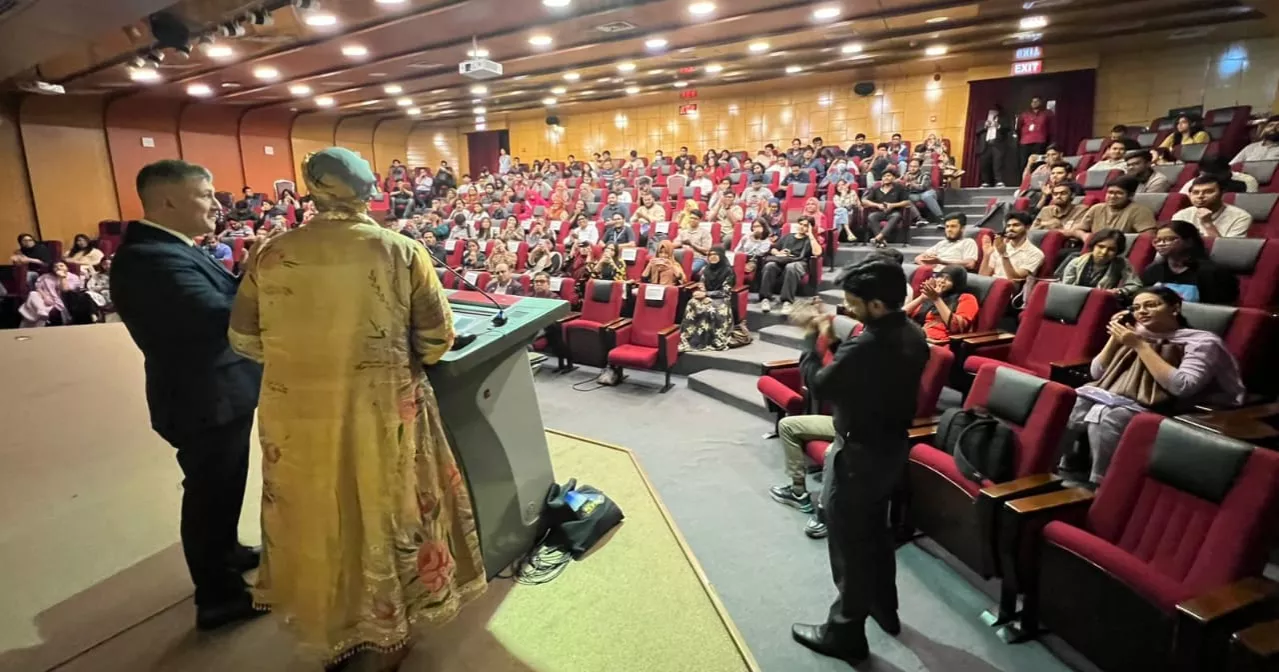The Embassy of the Republic of Kosovo in Dhaka, in collaboration with North South University (NSU), recently hosted Kosovo Film Day 2025, a landmark cultural and academic event that drew wide acclaim and an impressive turnout.
Held to commemorate the 26th Anniversary of Kosovo’s Liberation Day (12 June 1999), the event highlighted the power of film to reflect history, share human stories, and build bridges between nations.
The university auditorium was filled for both sessions of the screenings, with more than 250 guests attending each session. The audience included representatives from the Ministry of Foreign Affairs of Bangladesh, officials from various government departments, members of the diplomatic corps, honorary consuls, representatives of civil society organisations, business leaders and officers from the Diplomatic Security Division, as well as NSU faculty and students.
In his opening remarks, Lulzim Pllana, Ambassador of the Republic of Kosovo to Bangladesh, underscored the deep significance of the event: “Kosovo’s journey to independence has been shaped by tremendous challenges, but also by an unshakable belief in peace, democracy, and human rights. Through art and education, we honour those who sacrificed and continue to build bridges of friendship.”
Three critically acclaimed Kosovar films were screened at the event: Hive (Zgjoi) – directed by Blerta Basholli, based on the true story of Fahrije Hoti, a war widow who challenges patriarchal norms by establishing a small business in post-war Kosovo. The film received global acclaim, winning all major awards in its category at the Sundance Film Festival.
'Alchemy of Light': Gallery Cosmos hosts workshop by Juton Chandra Roy
Cold November (Nëntor i Ftohtë) – directed by Ismet Sijarina, set during the civil resistance of the 1990s, it portrays the inner turmoil of a civil servant caught between integrity and survival.
The Hero (Heroi) – directed by Luan Kryeziu, a post-war psychological drama that examines trauma, identity, and the often-silenced burden of survival for returning veterans.
Each film provided a compelling lens into Kosovo’s past and present, offering the audience a rare cinematic glimpse into its social fabric and resilience.
During the event, Ambassador Pllana also highlighted the evolving academic cooperation between Kosovo and Bangladesh. NSU is in the process of formalising academic partnerships with the University for Business and Technology (UBT) and AAB College in Kosovo, aiming to establish joint research projects, faculty and student exchanges, and collaborative initiatives in media and cultural studies.
Prior to the screenings, Ambassador Pllana was formally received by Prof Dr Abdur Rob Khan, Acting Vice-Chancellor of NSU. Discussions focused on the mutual commitment to enhancing educational ties and exploring future exchanges that empower young people in both countries, and Professor Khan praised the Embassy’s initiative and expressed his institution’s willingness to further strengthen bilateral academic and cultural ties.
“Events like Kosovo Film Day deepen our understanding of each other’s identities and histories. They open doors for long-term collaboration rooted in mutual respect and shared values,” he noted.
The Embassy of Kosovo extends its sincere gratitude to the faculty, staff, and students of North South University, whose support made the event a remarkable success. Their enthusiasm, engagement, and curiosity brought added meaning to the occasion.
Kosovo Film Day 2025 reaffirmed the transformative potential of cultural diplomacy and set a promising foundation for continued academic and people-to-people cooperation between Kosovo and Bangladesh.
